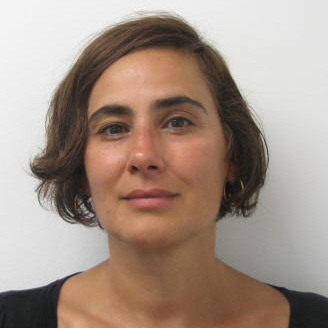GENED 1080: How Music Works: Engineering the Acoustical World
Music and technology are two dimensions of humanity that have been interdependent for tens of thousands of years; what can this intersection teach us about our past and our future?
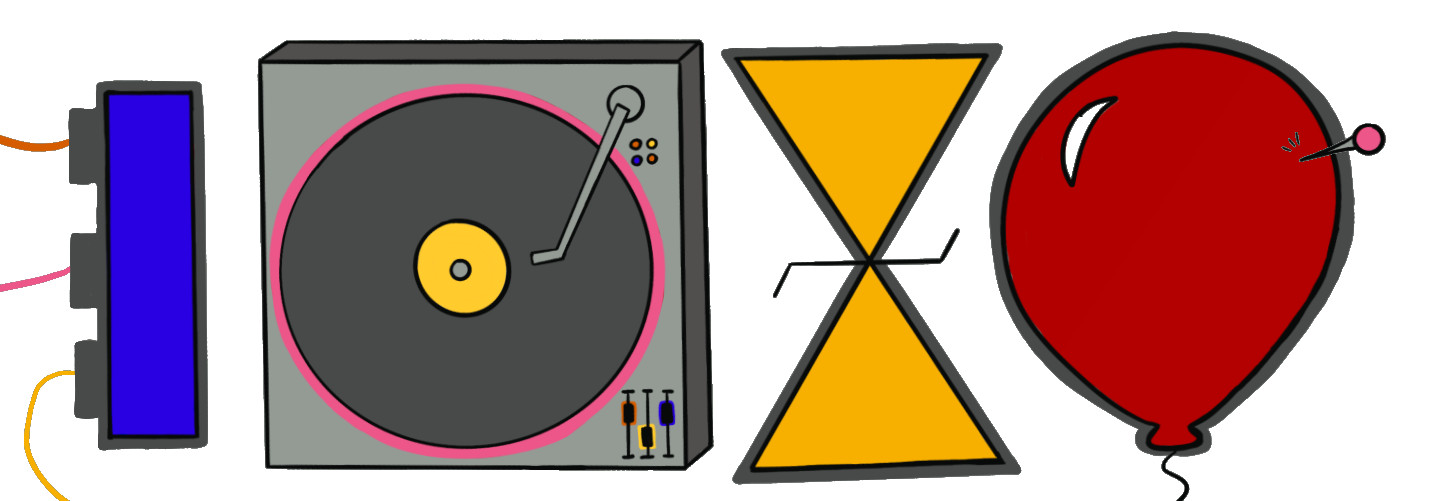
Welcome to GenEd 1080!
- Introduction
- Course Overview
- Weekly Structure
- Your Teaching Staff
- Grading and Course Policies
- Semester Schedule
Note regarding Fall 2024 enrollment:
This course has an enrollment cap and is a part of the coordinated, ranked-choice Gen Ed lottery. For all questions about the lottery please email gened_enrollment@fas.harvard.edu not the instructional staff of this course.
To participate in the lottery, you must first request permission to enroll and then rank your choices through my.harvard by 11:59 p.m. EST Tuesday, April 9, 2024. The Gen Ed lottery will run Wednesday, April 10; if you are successful in the lottery, your course petition in your Crimson Cart will turn to a green check that allows you to enroll. You then have until 11:59pm on Thursday, April 11 to claim your seat. After this date instructors can begin approving petitions until the course cap is reached. For timely updates and detailed instructions about entering the Gen Ed lottery, please see https://gened.fas.harvard.edu/fall-2024-courses-and-lottery.
Introduction
Thanks for joining us as we explore connections between two very different sides of the human experience: our expression through music, and our ability to design and engineer aspects of the world around us.
If you're thinking of enrolling, here are a few things you can do in advance to get a feel for the course:
- Browse through the syllabus (which you're reading right now) to get an overview of the course's topics and structure
- Watch the course trailer and 1080 Fest trailer in the Course Overview section below
- Watch the Intro Lesson from 2021 to start diving into the material, this video will give you a sense of what to expect.
The entire course staff is here for you!
The staff is dedicated to helping you meet the learning goals of the course, and to building an active community within GenEd 1080.
We know how important it is for you to be able to connect with the course staff, so we've set up several ways to make sure there's always someone available for you. At least one of us is always around on Slack, and the primary instructors are available for one-on-one or group discussions, in addition to our regular office hours (3:45-5pm Mondays in SEC 1.114).
Check out the Weekly Structure section below for more about how the semester will look, and the Teaching Staff section for individual office hours and contact info. Please don't hesitate to reach out to us any time.
The "new" SEC Building
If we weren't already excited enough about the course, this year we'll again be holding it in the Science and Engineering Complex. The building is a not-too-long (and scenic!) walk across the river to Allston, near the Athletic Complex and Business School. The SEC is an amazing space to learn, build, make some music, and simply hang out. The lectures will take place in SEC 1.321. The labs will take place in the mechanical engineering space (SEC 1.114) and electrical engineering labs (SEC 1.111). You will additionally be building your projects in the REEF Makerspace (SEC 1.112).
REEF Makerspace
The Makerspace will be staffed from 9 am to 9 pm on weekdays and 12 pm to 8 pm on weekends. Come in during these hours to get help with your project builds, and access to the woodshop and laser-cutting facilities.
Community members with swipe access will have access from 7 am to 12 am every day.
Rule #1: Only use equipment you are trained to use.
Rule #2: The buddy system applies when outside of staffed hours, so you must bring another human with you during non-staffed hours. DO NOT WORK ALONE.
Rule #3: Clean up. If you do not clean up, you will be penalized with loss of swipe access or forfeiting points on assignments.
EE Lab (SEC 1.110)
The EE Lab is open and staffed from 9am-4pm Monday-Friday. You are welcome to come in anytime during these hours. If there is a class going on, you are welcome to continue working, but be aware that classes take priority for space, equipment, and staff attention.
And now, back to the music!
Course Overview
How does Shazam know what song is playing? Why do some rooms have better acoustics than others? How and why do singers harmonize? Do high-end musical instruments sound better than cheap ones? How do electronic synthesizers work? What processes are common in designing a device and composing a piece of music? How is music stored and manipulated in a digital form? This class explores these and related themes in an accessible way for all concentrators, regardless of technical background.
The class is driven by hands-on projects to enhance your technical literacy, and you will learn a variety of skills (rapid prototyping, machining, modeling, etc) while also getting firsthand experience with the topics we discuss in lecture. The projects are designed so that the creativity of students in all fields will have a role to play. Lectures, demonstrations, and guest lecturers/performers are integrated into the class to build foundational knowledge and to inspire. We will also explore wider social and historical themes related to music and acoustics. The class is approached from an engineering perspective, using music and musical instruments as the framework to introduce a broad array of concepts in physics, mathematics, and engineering. No prior experience beyond high school level calculus and physics is required. Experience with a musical instrument (including voice) is a plus, but is also not required.
Acoustic and Electronic Builds
The course is divided into two parts: the first half of the course explores analog and mechanical musical instruments and phenomena; the second half explores electronics, including electrical effects, instruments, playback, and music storage.
The acoustic and electronic topics each culminate in an opportunity to design and build a musical instrument, and to create an original composition related to the unique characteristics of your instrument.
Final Project and 1080 Fest
The semester culminates in a collaborative final project and a science-fair-meets-music-festival called 1080 Fest to showcase your work.
Final project topics are open-ended, but generally involve one or more of the following:
- design, fabrication, and analysis of a musical device or system (in either software or hardware);
- musical composition using principles discussed in class; and/or
- exploration of a historical or scientific musical event or phenomena.
The acoustic, electronic, and final projects bring together the technical and creative skills you've gained throughout the semester. You're encouraged to let your curiosity guide you and to take advantage of the varied expertise of the teaching staff!
↑ Back to top
Weekly Structure
You can think of each week of GenEd 1080 as a vinyl record (stay tuned for much more on vinyl in Week 11).
The week's topic, like "Physics of Sound," or "Circuits and Synthesizers," is like an album with two sides:
- On Side A you'll find everything for our Class Meeting, and
- On Side B, you'll find everything for Lab Sections and Projects.
Each side starts out with tracks you listen to on your own, and ends with tracks we listen to as a group. So here's how a given week might look:
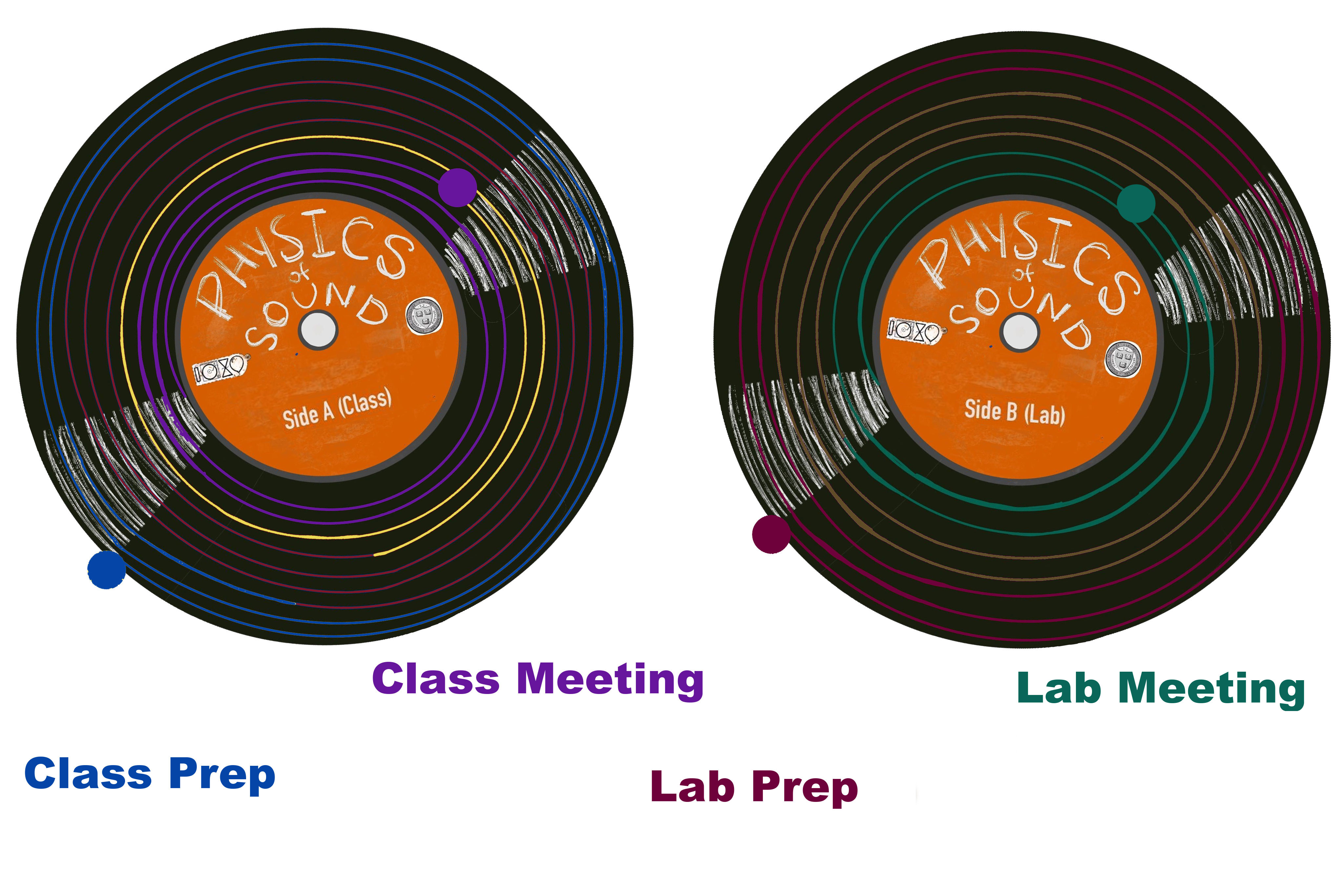
Side A:
Listen on your own (Class Prep)
Before coming to class, you listen on your own to the beginning of Side A. These will be things like readings, videos, and interactive websites about the week's topics.
All these materials will be available on the GenEd 1080 Canvas Site (the site you're looking at right now). Canvas will be our central hub for staying on track (pun intended), so be sure to drop in (pun intended) regularly for course announcements.
Listen together (Class Meeting)
Then we'll come together as a group in class. This is when Prof. Wood and the teaching staff will give lectures and demos, lead group activities, host special guests, and dive into some deep cuts to close out Side A.
Class will be held on Mondays and Wednesdays, from 11:15 am - 12:30 pm in the new SEC building (see the introduction section above)
You're required to attend the weekly class meetings! Please let the course staff know in advance if you need to miss class.
Side B:
Listen on your own (Lab Prep)
Then, we'll flip the record over and start digging into the week's lab build. The first track on Side B will be a pre-lab reading or activity to get you set up for your lab section.
During the Acoustic, Electronic, and Final Project builds, this will be time for you to work on prototyping and iterating on your instrument design and composition.
Listen together (Lab Meetings)
Then, we'll come back together in lab sections to build, troubleshoot, brainstorm ideas and modifications, discuss, and squeeze all the knowledge and experience you can out of your wildly brilliant and interesting lab TFs.
Lab sections are scheduled at the beginning of the semester using the Registrar's sectioning tool (to make sure there are no schedule conflicts with your other classes).
You're required to attend lab section each week! Please let the course staff know in advance if you need to miss a lab, or if there's a week when you need to attend an alternate lab section time. Please note that labs take the place of a discussion section... i.e., there are three meetings each week: two lectures and a lab, but no additional discussion section.
Extended Play
All throughout the week, there will be ongoing discussions and support on the GenEd 1080 Slack channel, where you can get nearly round-the-clock help from a member of the course staff, or from fellow students.
Beyond Slack, the primary instructors, TFs, and Active Learning Labs staff will hold regular office hours (see the Teaching Staff section below), and are also happy to set up additional one-on-one or group discussions.
↑ Back to top
Your Teaching Staff
Each and every staff member is happy to chat with you about any aspects related to your semester and GenEd 1080 in particular. Your lab TF is your first stop and go-to person for questions and troubleshooting: they will track your progress and help identify resources that you need. The Active Learning Labs team (their area of expertise and contact information are listed below) are happy to discuss your projects and progress as well. They will be available in office hours, and can also arrange to meet with you at other convenient times. The primary instructors are available to discuss any aspect of the course and to answer your questions at any time.
Instructor
Robert Wood

Office Hours: Mon/Wed following class, or by appointment
I am trained as a roboticist and have taught courses in Electrical Engineering, Mechanical Engineering, and Engineering Design... and recently I served as Chair of Bioengineering, so I enjoy interdisciplinary subjects. But another passion of mine has always been music — in particular I have played and tinkered with the electric guitar for over 30 years.
TFs
|
Dr. Michelle Yuen (Head TF) Office Hours: by appointment I'm a postdoc in the Harvard Microrobotics Lab working on robots and devices built using soft materials which allows for gentle interaction with humans, animals, and objects. On the music side, I've had varying amounts of experience playing piano, guzheng, guitar, and trumpet, and nowadays, will tinker around on the piano in LL2 of the SEC. |
Christian Chan (Lab TF) Office Hours: TBA I'm a 2nd year PhD student in the Harvard Microrobotics Lab working on insect-inspired flying robots (such as the Harvard RoboBee). I hope to make the RoboBee fully autonomous in the near future! I played cello for several years in the past, and have some experience playing guitar. I listen to all kinds of music and am always open to suggestions! I am looking forward to working with you all! |
Mady Corrigan (Lab TF) Office Hours: TBA I’m a 2nd year PhD student in the Harvard Microrobotics Lab working on scalable soft actuators to give walking microrobots the capability to conquer varied environments. I sing and play piano as hobbies, I used to play clarinet, and I’ve been trying to learn guitar as well. I’ve been listening to a lot of pop lately and have been getting into some more noise music, but I listen to all sorts of stuff except for jazz. I love recommendations for silly songs in particular. You may have already met me working in the makerspace in the SEC, and I’m looking forward to meeting the rest of you soon!
|
|
Ian Griffith (Lab TF)
Office Hours: by appointment I'm a 4th year PhD student in the Harvard/MIT program in Speech and Hearing Bioscience and Technology, working in the Laboratory for Computational Audition. I’m broadly interested in how the human brain translates sounds into perception and creating artificial systems that can do the same. Currently, I'm working on getting deep neural networks to simulate how us humans can attend to sounds in complicated listening environments. Before science, I was a music student studying composition and music production, and still play guitar with whoever I can (that's an invitation!). Please feel free to reach out with any questions! |
Steven Meisler (Lab TF) Office Hours: by appointment (outside of class hours and Fridays 11:30-1:30). I'm a 5th year PhD student in the Harvard/MIT program in Speech and Hearing Bioscience and Technology. My research focuses on relationships between brain structure and function, using reading and language (and their disabilities) as model. I'm mainly a jazz vibraphonist / pianist / drummer / composer, but have also dabbled in progressive metal and pop covers (did someone say "Mr. Brightside"?). This is my third year being a TF for this course, and I'm really looking forward to working with everyone!
|
Dr. Perrin Schiebel (Lab TF) perrin_schiebel@fas.harvard.edu Office Hours: by appointment I'm a postdoc in the Harvard Microrobotics Lab where I'm studying how passive mechanisms can help robots traverse complex terrains like those found in nature. I started my college career as a music performance major before making the switch to physics. While I currently focus my practice on classical flute, if someone gave me a bari sax I'd find the time.
|
|
Rachel Zoll (Lab TF) Office Hours: by appointment I'm a 5th year PhD student in SEAS focusing on medical robotics. Recently, I've interacted with music more through projects in signal processing and digital hardware. I enjoy listening to many genres of music including electroswing, jazz, and ambient electronic music!
|
Active Learning Labs
|
Hanna Quigley
|
James Quigley I'm an Electrical Engineer with a background in RF. I have my BS from MIT, have been working at Harvard for about two years, and I enjoy chess, football, and all-you-can-eat buffets.
|
|
SEAS Design and Innovation
|
Salma Abu Ayyash
|
Jim MacArthur
|
Nishant Sule
|
↑ Back to top
Grading and Course Policies
Grading Policy
Class (10%)
- Preparation and participation during class meetings (lectures and labs) comprise 10% of your course grade.
- Unexcused absences will reduce your class participation grade (i.e., 1% for each unexcused absence).
Labs (60%)
- Weekly lab builds and participation in lab section comprise 60% of the course grade.
- There are eight "regular" lab assignments, and two instrument build/composition assignments.
- Each regular lab assignment is graded out of four points:
- 1 point for completing the pre-lab activity. Note that, for most labs, you will not be able to start the in-person lab activity unless you successfully complete the pre-lab activity.
- 1 point for attempting the basic lab activities (i.e., in lab).
- 2 points for completing the basic lab activities and turning in post-lab deliverables.
- In addition, a bonus point may be given for successfully completing the advanced portion of the lab (and turning in any associated deliverables). Note that not all labs will have an advanced portion.
- Each of the two instrument builds is graded out of 14 points:
- The rubric for each instrument build and composition assignment will be detailed in the assignment prompts.
Final Project (30%)
- The final project comprises 30% of your course grade.
- This will consist of a preliminary project proposal, a final project submission, and participation in 1080 Fest. The rubric for the Final Project will be detailed in the assignment prompt.
Late Policy
- All lab assignments are due prior to the beginning of your assigned weekly lab section meeting, unless otherwise specified.
- All lab assignments will be posted on Canvas and will require an upload that will be timestamped.
- All students get a total of four late days they can bank over the course of the semester. If you anticipate being late completing a lab assignment, please notify your lab TF in advance.
- If your assignments are, in aggregate, more than four days late, subsequent late assignments will not be considered complete and will carry a maximum score of 2pts (i.e., if the pre-lab activity was complete and you participated in the synchronous lab activity, but did not submit the post-lab deliverables on time).
- Banked late assignments can be used for any assignment except for the final project.
- If you have extenuating circumstances that will cause you to have more than four late days (aggregated), please contact a member of the course staff to discuss alternate arrangements.
Lab Make-up
If you will miss or missed your lab section due to an excused absence, you will need to attend another lab section or office hours to make up the work. The lab section times and their TFs are listed below. To schedule lab make-ups, please message your regular TF and the TF of the section you would like to do your make-up. Please request lab make-ups sooner rather than later so that the staff can plan for the appropriate number of students ahead of time. Tentative Fall 2024 lab times:
| Day/time | Instructor |
| Wed 3:45-5 p.m. | TBD |
| Thurs 12:45-2 p.m. | TBD |
| Thurs 2:15-3:30 p.m. | TBD |
| Fri 9:45-11 a.m. | TBD |
| Fri 11:15-12:30 p.m. | TBD |
| Fri 12:45-2 p.m. | TBD |
Academic Accommodations
Students needing academic adjustments or accommodations should speak with the course head or head TF and present their letter from the Disability Access Office (formerly, Accessible Education Office) no later than the end of the second week of the term (Sept. 15) to develop a plan for implementing accommodations. Please respect this deadline so our teaching staff can respond to your needs in a timely manner. All discussions will remain confidential, although faculty may contact DAO to discuss appropriate implementation.
Academic Integrity
Members of the Harvard College community commit themselves to producing academic work of integrity – that is, work that adheres to the scholarly and intellectual standards of accurate attribution of sources, appropriate collection and use of data, and transparent acknowledgement of the contribution of others to their ideas, discoveries, interpretations, and conclusions. Cheating on exams or problem sets, plagiarizing or misrepresenting the ideas or language of someone else as one’s own, falsifying data, or any other instance of academic dishonesty violates the standards of our community, as well as the standards of the wider world of learning and affairs.
Important links for academic integrity:
- The Harvard College Honor Code
- Academic Integrity in the Harvard College Handbook
- Harvard Guide for Using Sources
Collaboration
In this class, you are welcome (and encouraged) to work with your fellow classmates to complete lab activities; however, pre-lab and post-lab assignments are expected to reflect individual effort and understanding. For the acoustic instrument build, electronic instrument build, and final project, you are encouraged to work in small groups resulting in a single build, and any portions of the project submission that are to be completed individually (e.g. reports, reflections, compositions) are denoted as such in the assignment.
Use of Generative AI Tools
Certain assignments in this course will permit or even encourage the use of generative artificial intelligence (GAI) tools such as ChatGPT. The default is that such use is disallowed unless otherwise stated. Any such use must be appropriately acknowledged and cited. It is each student’s responsibility to assess the validity and applicability of any GAI output that is submitted; you bear the final responsibility. Violations of this policy will be considered academic misconduct. We draw your attention to the fact that different classes at Harvard could implement different AI policies, and it is the student’s responsibility to conform to expectations for each course.
↑ Back to top
Semester Schedule
Acoustics
- Week 1 (Sep 2) - Introduction
- Week 2 (Sep 9) - Physics of Sound
- Week 3 (Sep 16) - String Instruments and Music Composition
- Week 4 (Sep 23) - The Human Voice and Music Theory
- Week 5 (Sep 30) - Wind Instruments and Time/Frequency Duality
- Week 6 (Oct 7) - Human Hearing
- Week 7 (Oct 14) - Percussion Instruments and Room Acoustics
Electronics
- Week 8 (Oct 21) - Transducers
- Week 9 (Oct 28) - Circuits and Synthesizers
- Week 10 (Nov 4) - Signals and Electronic Effects
- Week 11 (Nov 11) - Audio Storage and Transmission
- Week 12 (Nov 18) - Amplifiers and Speakers
- Week 13 (Nov 25) - Audio Fingerprinting and Music Copyright
- Week 14 (Dec 2) - Engineering in Music Culture and Practice
Final Project
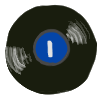
Introduction
Week 1 (Sep 4 - Sep 6, short week)
Welcome to GenEd 1080! This week we'll introduce the course, get up and running on Slack, and schedule lab sections, which will begin in Week 2.
Calendar and Announcements
- Fall semester begins Weds 9/4 (Monday schedule)
- No lab meetings this week
Track List
Getting Started
- Track 1 - Fill out The GenEd 1080 Intro Survey (right away!)
- Track 2 - Join the GenEd 1080 Slack channel (before class on Wednesday)
- Track 3 - Rank your preferred lab section times on my.harvard (by end of day Friday)
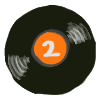
Physics of Sound
Week 2 (Sep 9 - 13)
What Is Sound? This week we'll introduce sound waves and the universal wave equation, as well as some properties of sound propagation, like the speed of sound, refraction, reflection, and diffraction. We'll also go over some history of how we've come to understand these phenomena and how they have been exploited throughout human history.
How is sound produced acoustically? A first exploration of the vibrations of strings. Discussion of the wave equation and how the solution gives rise to the harmonic series. We will also illustrate how we can model a complex mechanical system, and then reduce the model to simple approximations that allow us to explore concepts of resonance, damping, and a first introduction of the time-frequency duality.
Also, lab sections begin this week, so be sure to check my.harvard for your lab section assignment.
Calendar and Announcements
- Lab Sections begin this week
Track List
Side A (Class)
- Track 1 - Read "What is Sound?" (before class on Monday)
- Track 2 - Read How Sound Is Produced Acoustically (before class on Wednesday)
Side B (Lab)
- Track 1 - Complete the "Prelab for Prototyping I: Intro to Computational Tools" pre-lab assignment (before your first lab section)
- Track 2 - Begin the "Prototyping I: Intro to Computational Tools" lab assignment (during your irst lab section)
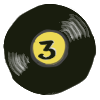
String Instruments and Music Composition
Week 3 (Sep 16 - 20)
How is sound produced acoustically? We continue our exploration into vibrations of strings from last week.
What are the connections between strategies for musical composition and engineering design? Design is all around us. Beyond the ubiquitous examples in architecture and consumer devices, engineering design is present in the transportation, communication, and information systems that we take for granted. Similarly, composers often follow an analogous process for creating a piece of music. This week we'll outline techniques used in both engineering design and musical composition.
Calendar and Announcements
- Acoustic Instrument and Composition Announced
Track List
Side A (Class)
- Track 1 - Continue Reading How Sound Is Produced Acoustically
Side B (Lab)
- Track 1 - Begin the "Prototyping II: Machining" lab assignment
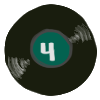
The Human Voice and Music Theory and Pipes
Week 4 (Sep 23 - 27)
How do we vocalize? This week we'll take a look at how our own vocal cords work, and how they relate to the principles we've already modeled in vibrating strings.
What are the connections between mechanical vibrations and the evolution of music theory? While our previous discussion of music theory described the physical underpinnings of the harmonic series, we will now investigate how this understanding led to the first musical systems: from Pythagoras and Ptolemy to the evolution of just intonation and equal temperament.
How do pipe organs and flutes work? We begin our exploration of the motion of air in pipes.
Calendar and Announcements
- Proposal for Acoustic Instrument due (see end of Lab 2 handout)
Track List
Side A (Class)
- Track 1 - Read "Musical Scales, Tuning, and Intonation"
- Track 2 - Read "Pipes and Plates"
Side B (Lab)
- Track 1 - Complete the "Prototyping II: Machining" lab assignment (by the beginning of your assigned lab section)
- Track 2 - Begin the "Prototyping III: 3D Printing and Laser-cutting" lab assignment
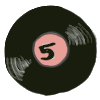
Wind Instruments and Time/Frequency Duality
Week 5 (Sep 30 - Oct 4)
How do pipe organs and flutes work? We continue our exploration of the motion of air in pipes with a visit to Memorial Church's pipe organ.
How can we represent music signals in both time and frequency?
Calendar and Announcements
- Normal week schedule
Track List
Side A (Class)
- Track 1 - Read "Time-Frequency Duality"
Side B (Lab)
- Track 1 - Complete the "Prototyping III: 3D Printing and Laser-cutting" lab assignment (before the beginning of your assigned lab section)
- Track 2 - Start Building your Acoustic Instrument and Composition
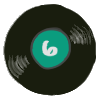
Human Hearing
Week 6 (Oct 7 - 11)
How do we hear? The human ear is a fantastically complex organ, and it embodies many of the principles we are studying in this course, including acoustics, impedance and impedance matching, and analog-to-digital conversion.
Calendar and Announcements
- Columbus Day/Indigenous Peoples’ Day Holiday Mon Oct 9
Track List
Side A (Class)
- Track 1 - Read "How Do We Hear"
Side B (Lab)
- Track 1 - Continue Building your Acoustic Instrument and Composition
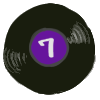
Room Acoustics and Transducers
Week 7 (Oct 14 - 18)
How do we design spaces to a particular acoustical goal? This week we'll extend our analysis of sound propagation into 3D spaces, where detailed models quickly become intractably complex, calling for a new way to analyze how sound reverberates in lecture halls, theaters, and our homes. This is a topic rich in local history, as the first studies on room acoustics were performed by a Harvard professor to improve the quality of Harvard lecture halls.
How do we transform vibrations into electrical signals? This week introduces the concept of transduction – converting energy from one form to another – by studying microphones and pickups. We'll introduce electromagnetism and electromagnetic induction, which will also allow us to revisit discussions on sensitivity, bandwidth, and second-order dynamics.
Calendar and Announcements
- Acoustic Instrument and Composition due by Sun Oct 15 11:59pm ET.
Track List
Side A (Class)
- Track 1 - Read "Room Acoustics"
- Track 2 - Read "Transducers"
Side B (Lab)
- Track 1 - Upload your Acoustic Instrument and Composition (by Sunday Oct 15 11:59pm ET)
- Track 2 - Begin the "Sound, Electricity, and Synthesis" lab assignment, and complete the pre-lab (before your lab section)
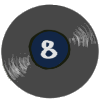
Percussion and Circuits
Week 8 (Oct 21 - 25)
How do percussion instruments work? An exploration of the vibrations of plates, and harmonic vs. inharmonic instruments. This week extends our previous analysis of one-dimensional systems into 2D and includes a presentation by a guest percussionist in Paine Hall.
How do we manipulate electrical signals? Now that we have converted mechanical vibrations to electrical signals, this week we'll introduce basic electrical circuit theory. This will be primarily in the context of simple effects such as tone controls. Using this framework, we can revisit time-frequency analysis and introduce concepts such as frequency response and transfer functions.
Calendar and Announcements
- Final Project Announced
- Normal week schedule
- Monday's lecture will be held in Paine Hall
Track List
Side A (Class)
- Track 1 - Read "Circuit Analysis"
Side B (Lab)
- Track 1 - Complete the "Sound, Electricity, and Synthesis" lab assignment (before the beginning of your assigned lab section)
- Track 2 - Begin the "MIDI and Arduino" lab assignment, and complete the pre-lab (before your lab section)
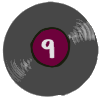
Circuits and Signals
Week 9 (Oct 28 - Nov 1)
How do we manipulate electrical signals? We continue our discussion of circuits for musicians.
What's the difference between analog and digital signals? This week we'll dive deeper into filters, effects, analog-to-digital conversion, and the differences between continuous and discreet time signals.
Calendar and Announcements
- Normal week schedule
Track List
Side A (Class)
- Track 1 - Read "Filtering"
Side B (Lab)
- Track 1 - Complete the "MIDI and Arduino" lab assignment (before the beginning of your assigned lab section)
- Track 2 - Begin the "Electronic Effects" lab assignment
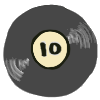
Signals and Audio Storage
Week 10 (Nov 4 - Nov 8)
What's the difference between analog and digital signals? We continue our discussion on signals and systems, focusing on digital signal processing.
How is music stored? The 20th century saw a flurry of techniques emerge for analog music storage that forever changed the way that we produce and experience music. This week we will focus on a comparative analysis of records and cassette tapes as the first widespread forms of music storage.
Calendar and Announcements
- Electronic Instrument and Composition Announced
- Normal week schedule.
- Guest lecture Monday (normal lecture location): Brian Crabtree from Monome
Track List
Side A (Class)
- Track 1 - Read "Sampling and Analog-to-Digital Conversion"
Side B (Lab)
- Track 1 - Complete the "Electronic Effects" lab assignment (before the beginning of your assigned lab section)
- Track 2 - Start Building your Electronic Instrument and Composition (due Tues 11/21 11:59pm)
- Track 3 - Begin the "Vinyl Records, Microscopy, Copyright" lab assignment (due Tues 11/21 11:59pm)
- Track 4 - Work on your Final Project Preliminary Proposal (due Sunday 11/12 11:59pm)
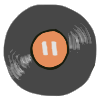
Audio Storage, Transmission and Amplification
Week 11 (Nov 11 - 15)
How is music stored? We continue our discussion in audio storage, now in the digital realm. Another sea change happened with digital music storage and distribution, and we will also discuss compact discs and MP3 formats with analysis on quality and memory. This will enable us to talk about sampling, analog-to-digital and digital-to-analog conversion techniques, and error checking/correcting.
How is music transmitted? We will also tune in to a historical and technical overview of radio. This expands to more contemporary approaches to transmission such as streaming music, including techniques for compression.
How does my home stereo work? This module will bring our discussion full circle by investigating transduction in reverse. Topics will include device physics associated with vacuum tubes and more modern semiconductor transistors, basic amplifier concepts and architectures, and the design of speaker drivers, speaker enclosures, and crossover networks.
Calendar and Announcements
- Final Project Preliminary Proposal due Sunday, Nov 12 11:59pm
- Normal week schedule
Track List
Side A (Class)
- Track 1 - Read "Amplifiers"
Side B (Lab)
- Track 1 - Continue the "Vinyl Records, Microscopy, and Copyright" lab assignment (due Tues 11/21 11:59pm)
- Track 2 - Continue Building your Electronic Instrument and Composition (due Tues 11/21 11:59pm)
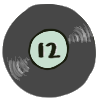
Amplifiers and Speakers
Week 12 (Nov 18 - 22)
How does my home stereo work? We continue our discussion on audio playback.
Calendar and Announcements
- Thanksgiving Recess Wed-Sun 11/22-11/26
Track List
Side A (Class)
- no reading this week
Side B (Lab)
- Track 1 - Complete the "Vinyl Records, Microscopy, and Copyright" lab assignment (by 11:59pm on Tuesday 11/21)
- Track 2 - Finish and Upload your Electronic Instrument and Composition assignment (by 11:59pm on Tuesday 11/21)
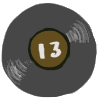
Audio Fingerprinting and Music Copyright
Week 13 (Nov 25 - Nov 27, short week)
How does Shazam know what song is playing, and does it also know if two songs are similar? How do we decide what attributes contribute to similarity, and can we model these attributes algorithmically? What significance does similarity have to music recommender systems like Spotify, or to music copyright infringement cases, or to the idea of a musical composition itself?
Calendar and Announcements
- TBD
Track List
Side A (Class)
- Track 1 - Reading TBA
Side B (Lab)
- Track 1 - Begin working on your Final Project
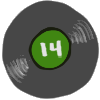
Engineering in Music Culture and Practice and Reading period
Week 14 (Dec 2 - Dec 6) Final week of lectures
What is the relationship between developing technical craft and creating personal, musical meaning? How do the topics we've explored in this class relate to musical cultures and traditions more broadly?
Calendar and Announcements
- Last Day of Classes Tues 12/5
- Reading Period is Wed 12/6 - Sun 12/10
Track List
Side A (Class)
- Track 1 - Reading TBA
Side B (Lab)
- Track 1 - Continue working on your Final Project
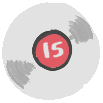
Exam Week
Week 15 (Dec 9 - Dec 13)
This week is dedicated to continuing work on your Final Project.
Calendar and Announcements
- Final Exam Period begins Monday 12/11
Track List
- Track 1 - Fill Out the 1080Fest planning survey (by Monday 12/11)
- Track 2 - Continue working on your Final Project
- Track 3 - Stop by lab office hours: TFs will hold office hours Monday and Tuesday 9a-5p AND during all normal lab times if you'd like to discuss or troubleshoot your final project
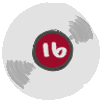
1080 Fest
Week 16 (Dec 16 - ??)
This week you'll put the finishing touches on your Final Project and we'll have our annual science-fair-meets-music-festival showcase, 1080 Fest!
Calendar and Announcements
- Final Project due
- 1080 Fest! (time TBD, location: SEC LL2)
- Final Exam Period ends Fri 12/20
Track List
- Track 1 - Upload your Final Project Report and Presentation (before the beginning of 1080 Fest)
- Track 2 - Come to 1080 Fest! (time TBD, in the SEC LL2 atrium)
↑ Back to top
